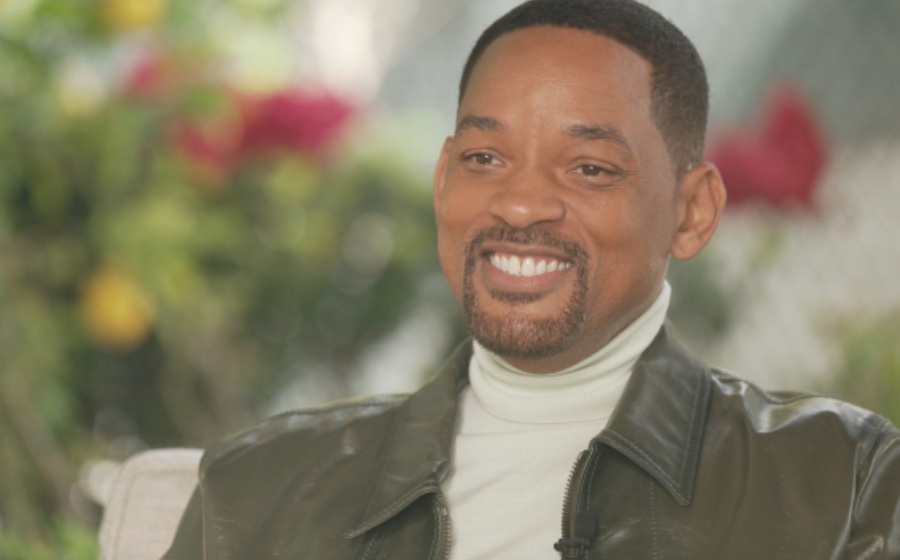Will Smith has been one of the biggest movie stars in the world for decades, but it has just in the last few years, with his appearances on wife Jada Pinkett Smith’s show Red Table Talk and his 2021 memoir, Will, that he’s really opened up. He did it again in an interview with Gayle King that airs this week on CBS Sunday Morning.
“I thank God for my suffering, you know? My suffering helped me to become who I am,” the Oscar-nominated King Richard star says in the preview. “My suffering helped me to build the life and the family and helped me to find the truth that I base my life on today.”
But it hasn’t been easy to experience. Smith recalled that, when he was 9, he saw his father beating his mother, and he blamed himself for not doing anything to protect her. He wrote in Will that his father had punched his mother so hard in the side of her head that she had collapsed and spit blood. “That moment in that bedroom, probably more than any other moment in my life, has defined who I am,” he wrote.
When King asked Smith what he was supposed to have done, since he was a little boy, he dismissed her.
“You know, the child mind doesn’t work like that,” said Smith, who’s now 53. “I expected to be a superhero.”
The actor and producer wrote in his book that his father was “violent,” yes, but dedicated, too.
“He was also at every game, play, and recital. He was an alcoholic, but he was sober at every premiere of every one of my movies,” wrote Smith, the father of sons Trey, 29, as well as 23-year-old Jayden and daughter Willow, 21. “He listened to every record. He visited every studio. The same intense perfectionism that terrorized his family put food on the table every night of my life.”
The future movie star told King that he again blamed himself when his parents divorced a few years later.
“And it was, that was the only time in my life that I considered suicide,” Smith said. “And, you know, it … it just was, it was my fault. You know, I don’t know how kids do that … in their mind, but you know, it was somehow my fault.”
It wasn’t until the end of his father’s life — he died in 2016 — that Smith was able to move past those feelings.
“And, you know, in that, in those last moments with my father, when I was able to forgive my father, I had a shocking realization that I was able to forgive myself,” Smith said. “My father dying started a new phase of my life.”



